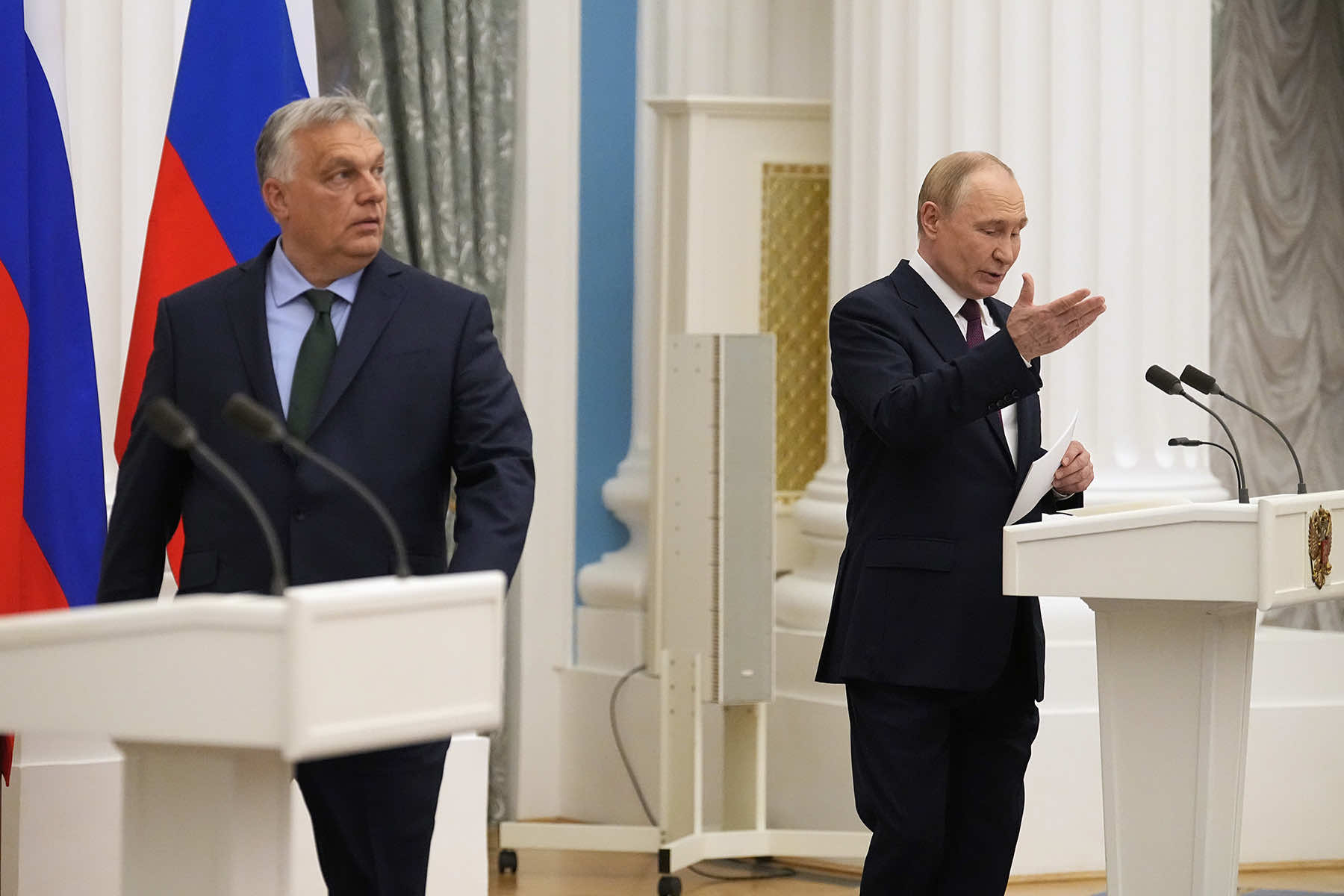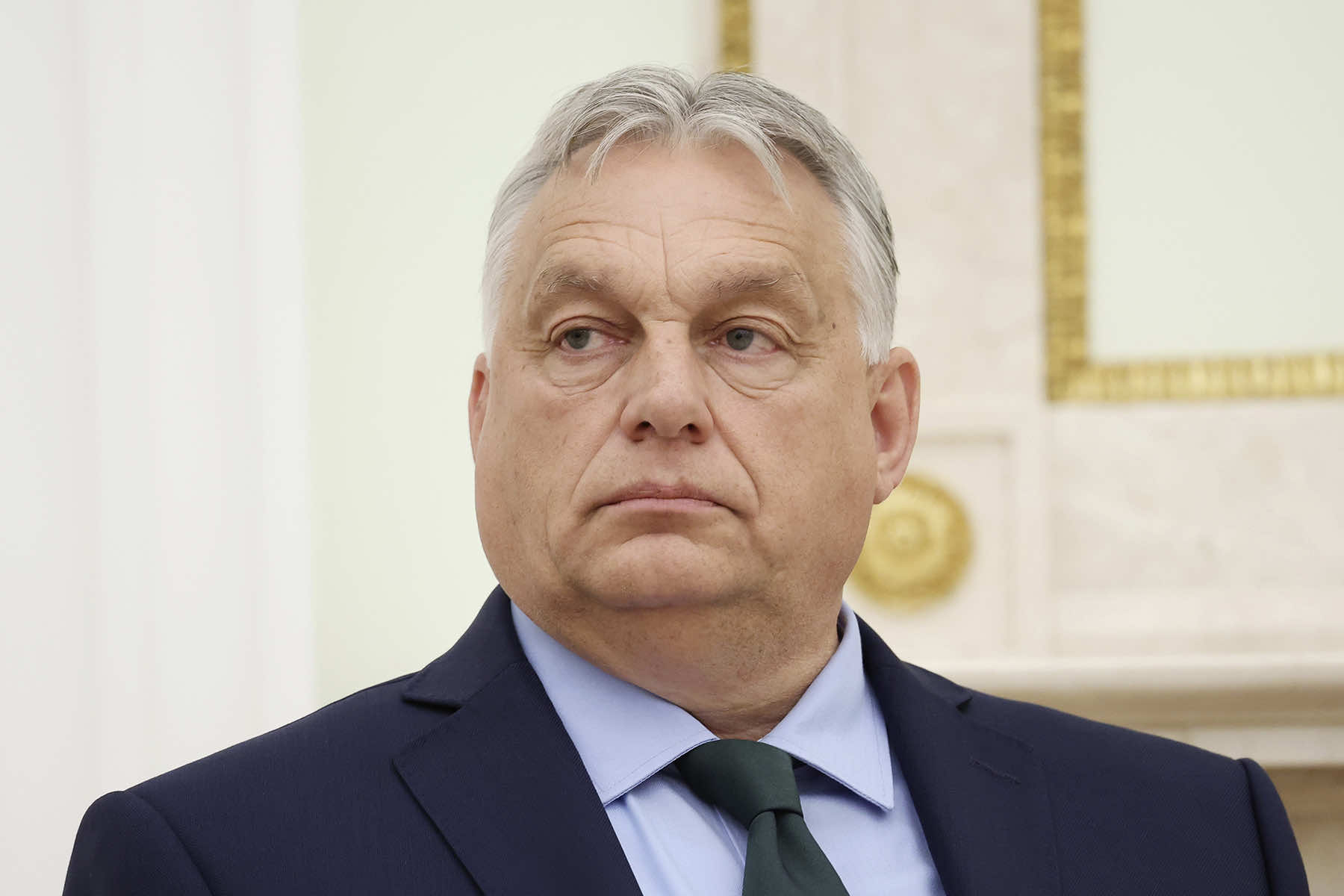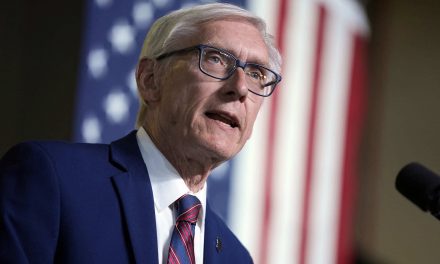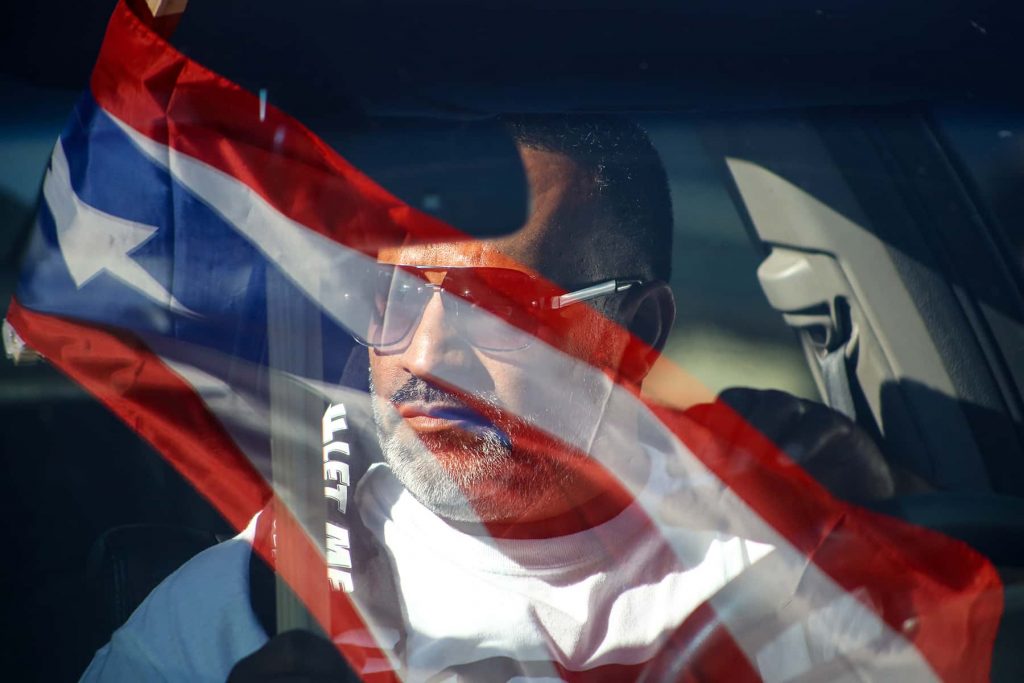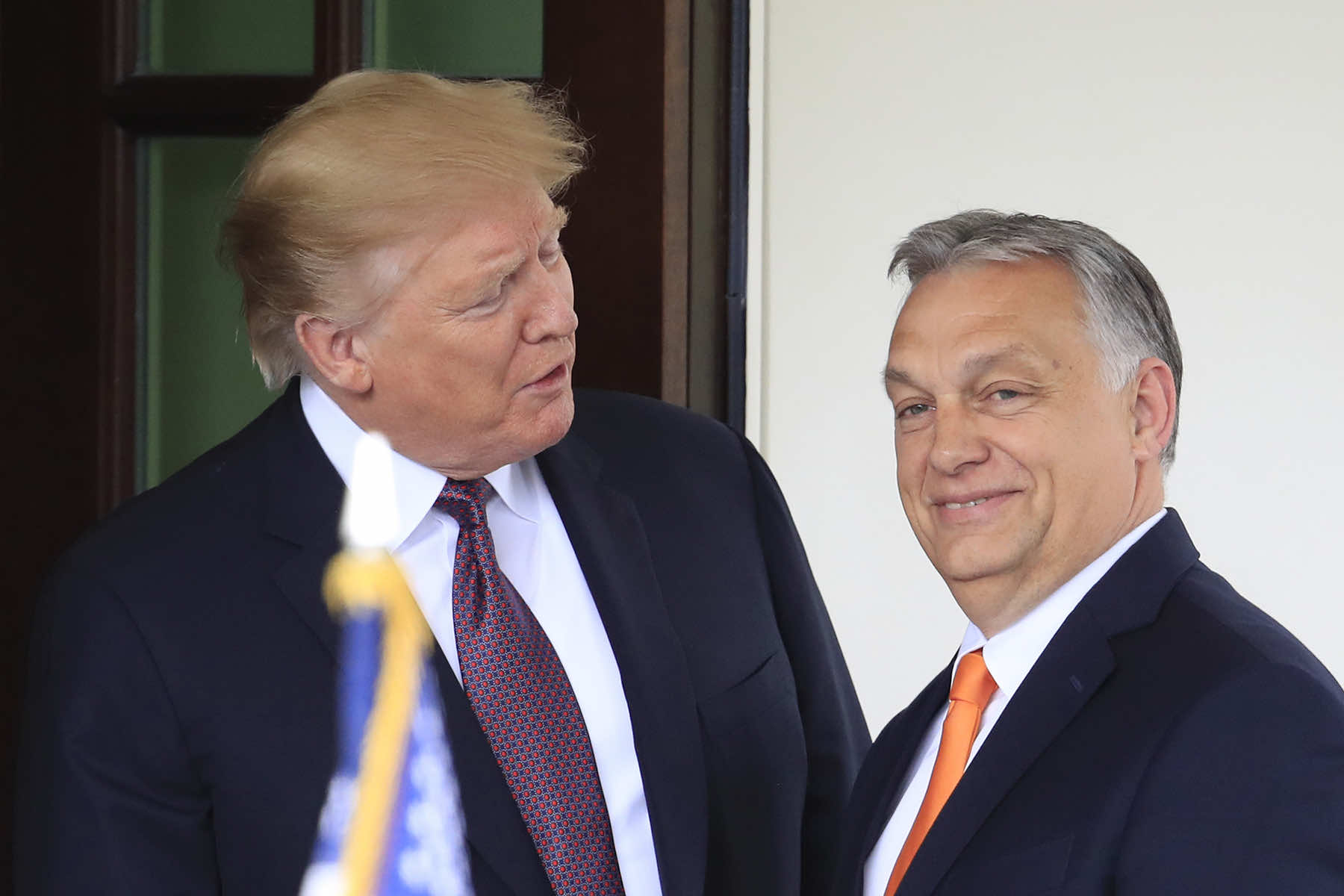
In the eyes of radical MAGA conservatives, Viktor Orbán is not just a European leader, he is a prophet.
The Hungarian prime minister has become a celebrity figure in far-right American circles, regularly praised on Fox News, invited to speak at CPAC events, and emulated by GOP hardliners who view his autocratic tactics not as a threat to democracy, but as a road map to reclaim it, on their terms.
To them, Orbán’s Hungary represents a nationalist ideal: a White, Christian, anti-immigrant society where liberal institutions are dismantled, dissent is suppressed, and the leader rules with unchecked authority in the name of “the people.”
But beneath the glossy illusion of national renewal lies a decaying state marked by deep corruption, economic stagnation, and authoritarian rot. What Orbán has built is not a model of strength, but a cautionary tale.
And, it is the future for America that Donald Trump is openly championing.
Orbán’s rise to power has been methodical. Since 2010, his Fidesz party has held a parliamentary supermajority, allowing him to rewrite Hungary’s constitution, rig electoral laws, neuter the judiciary, and seize control of the media.
Each move was legal on paper, and fatal to democracy in practice. As Freedom House now classifies Hungary as “partly free,” the European Union has gone further, invoking Article 7 proceedings for rule-of-law violations and freezing billions in funding over systemic corruption and judicial interference.
But Orbán’s international isolation is precisely what makes him attractive to the American far right. In their worldview, being condemned by global institutions, liberal democracies, and the press is a badge of honor. They do not want a pluralistic democracy. They want absolute and unchecked control.
In 2022, Orbán spoke at CPAC Dallas, declaring: “The globalists can all go to hell. I have come to Texas.” He was met with thunderous applause.
That same year, disgraced Fox News host Tucker Carlson filmed a special in Budapest and praised Orbán’s immigration policies and cultural messaging, calling him “a man who is actually representing the interests of his people.” Carlson did not mention Orbán’s dismantling of press freedoms or the mass exodus of Hungarian youth fleeing for opportunity abroad.
But the facts are stubborn. Under Orbán’s regime, Hungary has dropped to the lowest-ranked European Union member on Transparency International’s 2023 Corruption Perceptions Index, scoring 42 out of 100 and placing 77th globally.
The score places Hungary at the bottom of the EU in terms of perceived public sector integrity. The organization cited the government’s weakening of checks and balances, limited oversight of public funds, and preferential treatment of political allies in state contracts as core concerns.
Investigative journalists from Direkt36, an independent Hungarian outlet, have repeatedly reported on how Orbán’s close associates — including his childhood friend Lőrinc Mészáros — have accumulated enormous wealth through state contracts, acquisitions of media companies, and control over strategic industries. Years of reporting detail the expansion of a politically connected elite whose rise correlates directly with Fidesz’s dominance of public spending and regulation.
Meanwhile, poverty and inequality have widened. Rural areas remain underdeveloped, and more than 500,000 Hungarians — over 5 percent of the population — have left the country since Orbán took office, most of them young professionals seeking freedom and economic stability abroad. Public dissatisfaction with the direction of Hungary has grown in recent years.
In the 2023 Eurobarometer survey, Hungary ranked among the lowest in the EU for trust in national institutions and optimism about the country’s future. While percentages vary by poll and topic, multiple surveys conducted by Median and Pew Research have also shown that significant portions of the Hungarian population express concern over corruption, media control, and democratic backsliding.
This is the system that MAGA conservatives revere. Not despite the corruption and decline, but because of the control it gives their ideological allies. For Trump, who has openly praised Orbán as a “strong leader” and “great man,” Hungary is a prototype for the United States.
During his first presidency, Trump made no secret of his admiration for autocrats. He publicly sided with Russian dictator Vladimir Putin over U.S. intelligence agencies, called China’s Xi Jinping “brilliant,” and congratulated Türkiye’s Erdoğan on expanding presidential powers.
But it is Orbán who offers the most directly transplantable model: seize the courts, rig the rules, polarize the press, crush dissent, and keep elections just competitive enough to retain the façade of legitimacy.
This model is already metastasizing within Republican politics. At the state level, GOP lawmakers have aggressively redrawn districts to gerrymander maps, passed voter suppression laws, and used culture war battles to marginalize teachers, librarians, journalists, and civil rights groups. In Florida, Governor Ron DeSantis has tested Orbán-style control over education and media. But it is Trump’s national ambitions that pose the greatest threat to America’s Constitutional freedom and democracy.
Orbán’s playbook has already been adapted for an American audience. The Heritage Foundation, a toxic cornerstone of conservative policy planning, spearheaded Project 2025, a blueprint for Republicans and Trump’s second presidency.
It outlines a total restructuring of the federal government, including purging civil servants, dismantling regulatory agencies, and consolidating executive power. It is, in effect, an Americanized version of Orbánism: gut the system from within and rebuild it in the image of one-party rule.
In Hungary, the long-term cost has been civic paralysis. Voter apathy has grown alongside authoritarianism, and opposition forces are routinely undermined by media smear campaigns and legal threats.
In the United States, Trump has repeatedly labeled journalists the “enemy of the people,” while his loyalists push to defund public broadcasting and criminalize protest. From banning books to threatening election workers, the tactics are no longer theoretical — they are operational.
Authoritarian regimes rarely emerge overnight. They build incrementally, through what Orbán himself has called “illiberal democracy.” In a now-notorious 2014 speech in Romania, he said Hungary would reject the “liberal model” in favor of a system that prioritizes national sovereignty, traditional values, and cultural homogeneity.
“The new state that we are building,” he said, “is an illiberal state, a non-liberal state.” Hungary, in his words, would model itself after Türkiye, China, and Russia.
Trump and his ideological cronies are not merely sympathetic to this worldview — they are actively promoting it. CPAC has hosted Orbán twice in the past three years, including once in Budapest, making Hungary the first foreign nation to host the American political conference.
Steve Bannon, former chief strategist to Donald Trump, has frequently praised Orbán’s political model, referring to him as a “patriot” and an example of “sovereignty-first” leadership. In public remarks and interviews, Bannon has called Orbán’s Hungary a case study in how to use cultural issues and institutional control to win long-term political power, a model he has said should inform conservative movements in the U.S. and across Europe.
The shared themes are unmistakable: demonize immigrants, portray LGBTQ+ communities as existential threats, define national identity by race and religion, and characterize all critics as agents of globalist conspiracies. Orbán routinely blames “Brussels bureaucrats” and Jewish financier George Soros for Hungary’s woes. Trumpworld recycles the same language — except it is “deep state,” “globalist elites,” and “woke Marxists.”
And just like Hungary, the United States now faces the hollowing out of its democratic institutions — not through coups or tanks in the street, but through corrupted elections, judicial stacking, and legislative capture. What Orbán did to Hungary was legal. What Trump is doing in his second term has tried to cloak itself in legality, too. That is what makes it so dangerous.
This is not a partisan concern, it is a structural one. The question is not whether one party wins or loses. It is whether the rules that define a constitutional democracy survive the next decade.
Orbán has proven that it is possible to transform a democracy into a soft autocracy without ever suspending elections, so long as you control the courts, the press, and the narrative. Trump’s movement — increasingly divorced from policy and driven by a cult of personal loyalty — is perfectly suited to follow in the same trajectory.
Hungary’s present condition is America’s warning. A country once on track for full European integration is now drifting toward the authoritarian periphery. It is isolated, corrupt, and economically brittle, with a shrinking labor force and an educational system starved of investment. Orbán’s hold on power has cost Hungary its credibility and future.
If Americans ignore that example, the consequences will not just be political — they will be generational. Trump’s authoritarian aspirations, cloaked in nationalism and culture war rhetoric, are not a glitch. They are the strategy. And Orbán is the proof of concept.
The choice in 2024 was never just between two candidates. It was between two systems. One was still governed — however imperfectly — by democratic norms, open institutions, and civic accountability. The other is Orbán’s Hungary: a state captured, a society divided, and a people subdued.
What Viktor Orbán has built is not a model for greatness. It is a monument to what democracy looks like when it is strangled slowly, and then claimed as a triumph. And it is exactly what Donald Trump wants America to become.
© Photo
Manuel Balce Ceneta (AP), Alexander Zemlianichenko (AP), and Valeriy Sharifulin (AP)


